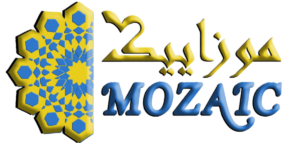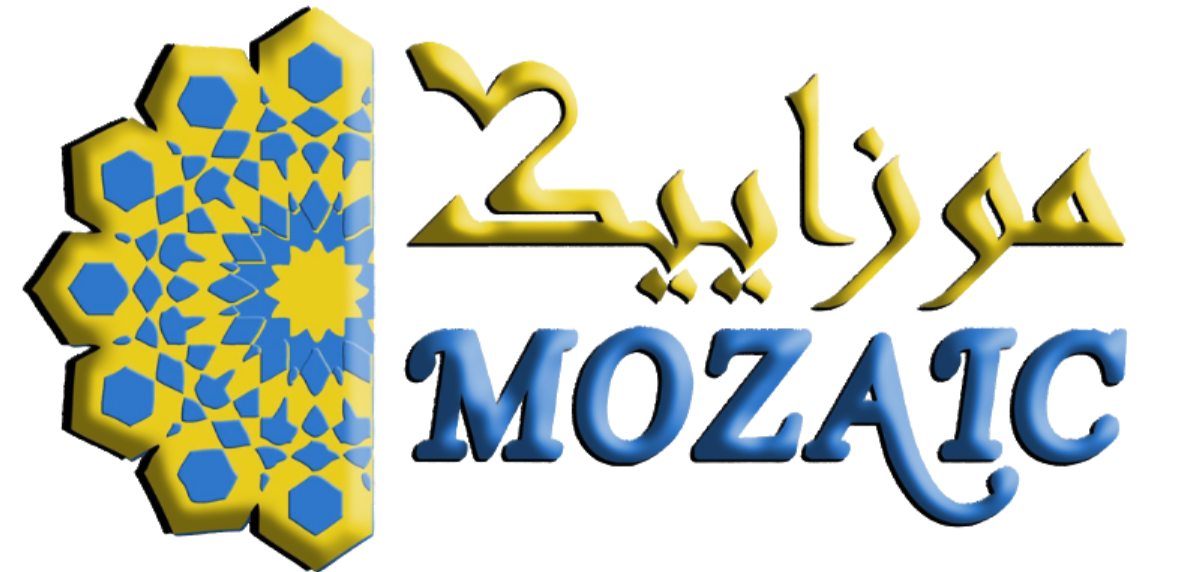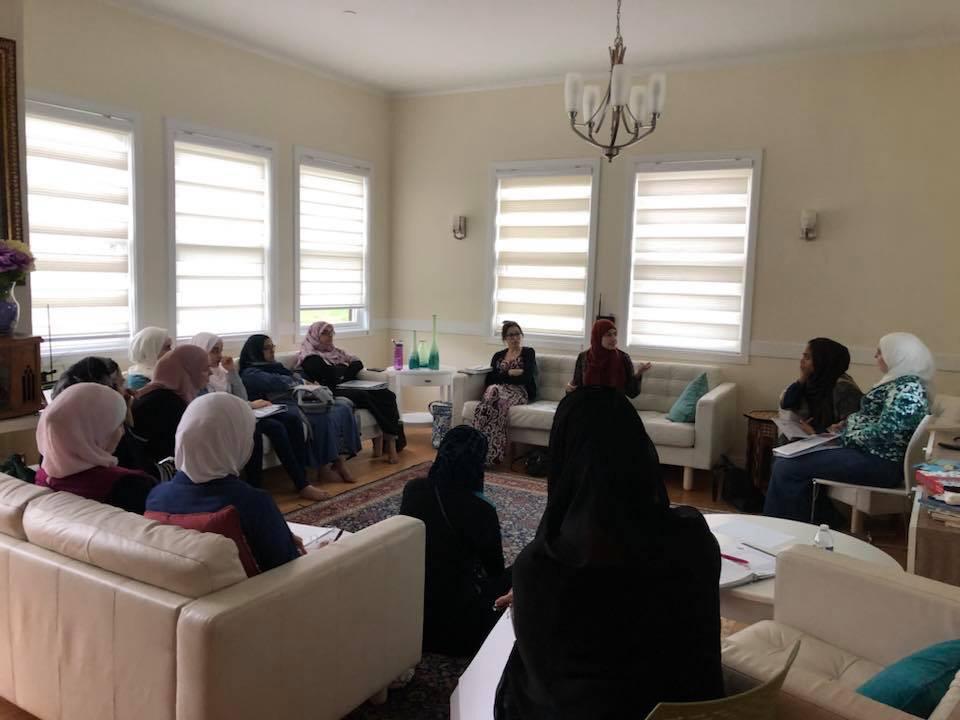
The global refugee crisis has left millions of individuals and families displaced,
facing numerous challenges as they seek safety and stability in new countries.
At Mozaic, our journey has been dedicated to discovering the most effective ways to address and improve the mental health challenges faced by refugees. We embarked on this mission out of deep care and concern, fully aware that behind every refugee family’s door lies a story, often marked by severe adversity. Our dedicated team listened to these stories, absorbing the pain and hardships experienced, and we recognized the pressing need to extend our support to refugees, with a particular focus on their mental well-being.
In our pursuit to alleviate the mental health burdens carried by refugees, we encountered a spectrum of experiences. Some children, scarred by the ravages of war, had to undergo medication regimens and frequent visits to psychiatrists, their innocence shattered by the traumas they had witnessed. For others, the challenges were less severe but required immediate attention, especially among the mothers who bear the weighty responsibility of caring for their children in a new and often unfamiliar environment.
We discovered a profound truth through our research: resilient mothers hold the power to empower their children and guide them toward healthier paths. A mother burdened by depression, on the other hand, may find it difficult to fulfill even the smallest responsibilities. Our observations further revealed that women, in many cases, exhibit remarkable resilience, demonstrating a capacity to thrive and respond swiftly to support. As a result, they often show significant improvement more rapidly than men, which translates into accelerated language acquisition, effective management of their children’s education, medical appointments, and even the pursuit of home-based livelihoods such as catering, sewing, babysitting, or tutoring in Arabic and Quran.
In this article, we will delve into Mozaic’s efforts to provide holistic support, including mental health initiatives, to refugees, with a special focus on the resilience and progress of refugee women. Our mission is not only to address immediate challenges but also to nurture the long-term well-being and self-sufficiency of those who have experienced the upheaval of displacement.
Refugee Mental Health Challenges:
- Trauma and PTSD (Post-Traumatic Stress Disorder): Refugees often carry the psychological scars of their past experiences, which may include exposure to violence, loss of loved ones, and other traumatic events. These experiences can lead to PTSD, causing flashbacks, nightmares, and severe anxiety.
- Depression and Anxiety: The uncertainty and stress associated with displacement, along with the loss of social support networks, can contribute to the development of depression and anxiety disorders among refugees.
- Isolation and Loneliness: Refugees may find themselves in unfamiliar environments with limited social connections. This isolation can lead to feelings of loneliness, which, over time, can exacerbate mental health issues.
- Cultural and Language Barriers: Adapting to a new culture and language can be overwhelming. Communication difficulties and a sense of not belonging can add to the emotional strain refugees face.
- Stigma Surrounding Mental Health: In many cultures, there is a stigma associated with mental health issues. Refugees may be reluctant to seek help due to fear of being ostracized or misunderstood.
On World Mental Health Day, it’s crucial to acknowledge and address the unique challenges refugees face, contributing to their mental well-being, resilience, and hope in their new homes.
Mozaic has undertaken various methods and efforts to aid refugee mental health different challenges:
Hospitalization and Child Care Support:
Mozaic has provided financial support for severe cases requiring hospitalization.
Childcare services have been offered to prevent children from entering foster care, recognizing the importance of keeping families together.
Case Study: A refugee mother faced severe mental health challenges, leading to a suicidal attempt. The Department of Family Service (DFS) intervened by taking custody of her five children, as the father was at work when the attempt happened. Mozaic stepped in with a commitment to support the family financially, allowing the father to leave his job and care for his children. In response to the DFS’s request, Mozaic facilitated a housing change and provided improved furniture to ensure the children’s safety. Additionally, a two-month-old child, who had been rejecting formula, was matched with a nursing refugee mother for breastfeeding. Mozaic Kitchen arranged meals for the family. After four weeks, the mother was discharged, and the father continued to stay at home for six months, with Mozaic covering rent and family expenses. This newfound financial stability along with long-term case management significantly improved the mental health of all family members.
Subsequently, it emerged that the mother had been exposed to harrowing war scenes in Syria, which included the tragic loss of three relatives and her brother suffering the loss of his legs. These experiences, left unaddressed for several years, ultimately contributed to the development of schizophrenia. Moreover, her former neighbor played a part in exacerbating her condition by subjecting her to daily verbal harassment upon hearing her children’s footsteps, along with threats to involve the police and have her children removed.
Group and Individual Therapy:
While group therapy initially encountered resistance due to concerns related to social stigma, individual therapy has emerged as a successful approach, especially for refugee children grappling with issues like peer bullying and the profound trauma linked to their migration experiences.

Mozaic initially organized group therapy sessions, bringing together women and men separately, with the guidance of psychologists to lead the sessions. However, this approach faced resistance from refugees. To encourage participation, we introduced a communal aspect by including food gatherings as part of the sessions. This resulted in a temporary increase in attendance, as more individuals joined for the shared meals. Nevertheless, attendance eventually dwindled, with some participants expressing reluctance, stating that they didn’t want to be associated with the perception of mental health treatment as something only for those considered “crazy.”
We have provided numerous individual therapy sessions, and these have yielded positive outcomes for those who felt assured that the therapist was supportive, trustworthy, and ensured confidentiality.
Art Therapy:
Mozaic art therapy program has had a significant and positive impact on the refugee children we work with. Through this creative outlet, we’ve witnessed children expressing and processing complex emotions tied to their experiences of trauma and displacement. This unique form of therapy provides them with a safe space where words are not necessary to communicate their inner worlds. It empowers them to regain a sense of control, enhances their self-esteem, and fosters important skills like problem-solving and emotional regulation. Ultimately, our art therapy program equips these young individuals with the tools they need to navigate their past traumas and embrace their journey toward healing and resilience.

Equine Therapy:
Equine therapy has been a valuable addition to our programs, to ensure access to this therapy, Mozaic took the initiative to contract with a therapeutic farm. This partnership allows us to offer equine therapy both to families as a group and on an individual basis.
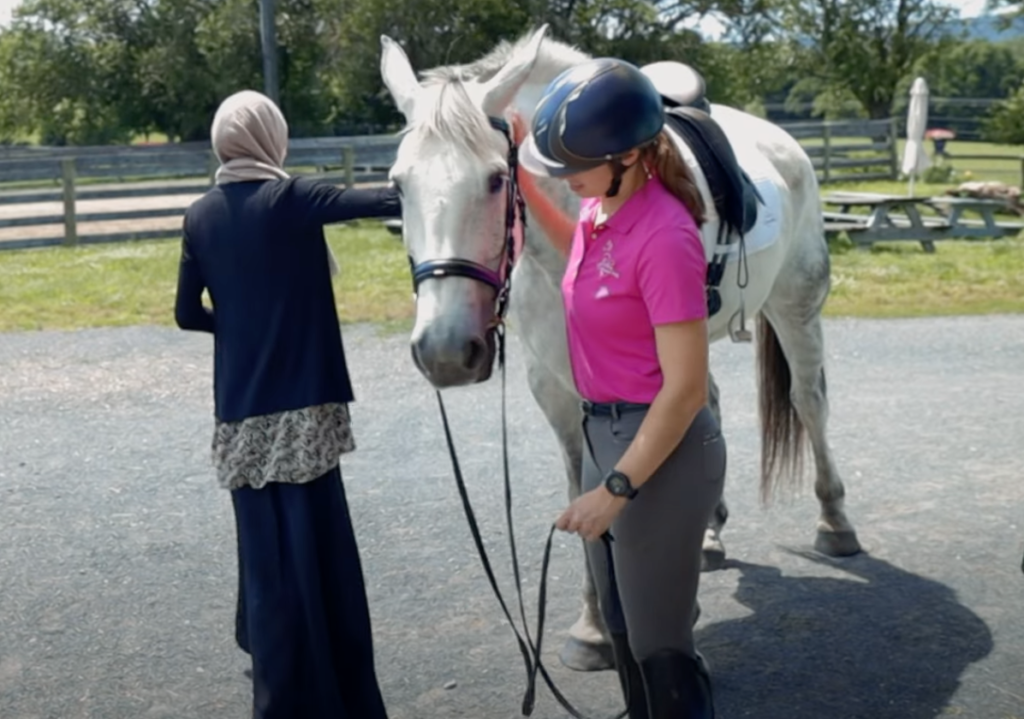
This therapy proving especially effective with refugee families from higher socioeconomic backgrounds, albeit a smaller segment within the refugee population. However, it’s worth noting that this therapy has faced resistance from individuals hailing from less privileged backgrounds, who have at times found it intimidating.
Our ability to provide equine therapy has been limited, primarily due to the high fees associated with it and the reluctance of eligible families to participate in this form of therapy.
Spiritual Support:
Mozaic places a strong emphasis on providing spiritual support to refugees, understanding its profound impact on their mental well-being. Our spiritual sessions, featuring Quran recitation and remembrance of God, have yielded significant improvements, especially among women. These sessions serve as a vital source of strength and support, helping individuals navigate the emotional challenges of their refugee journey. Recognizing that 99% of our beneficiaries are Muslims, we recognize the importance of religious support in healing trauma. By prioritizing spiritual support, we empower individuals to find solace, strength, and a sense of connection to a higher power, offering a crucial foundation for their recovery and resilience.
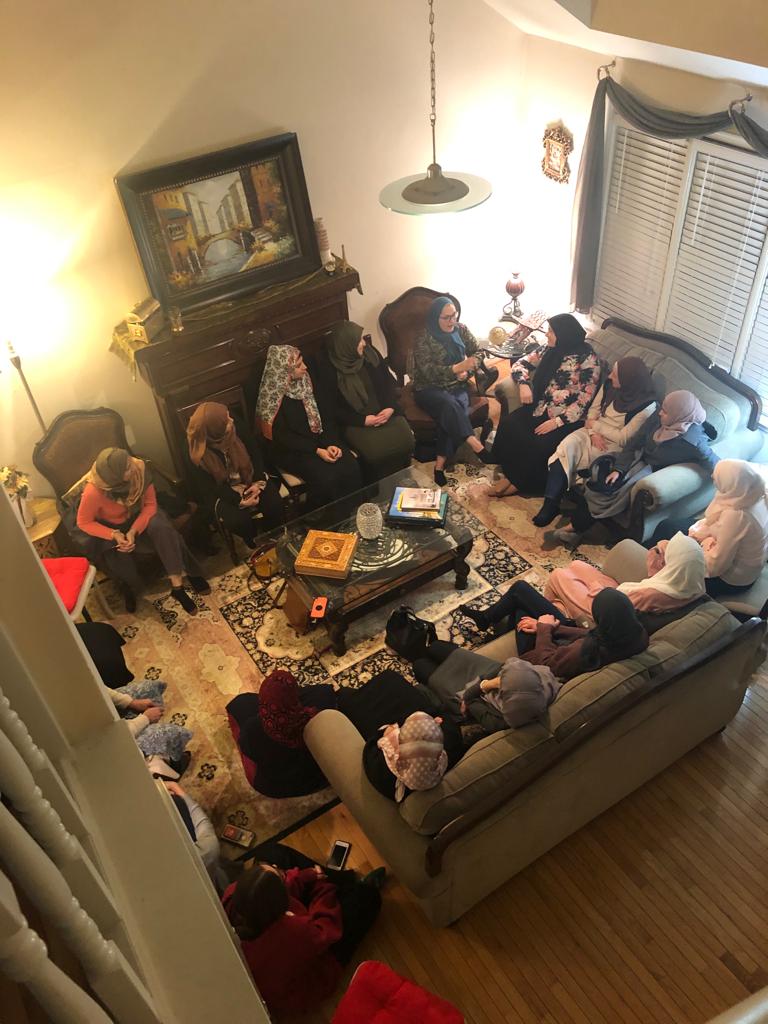
Yoga vs Faith-Based Meditation:
Although many of our volunteers generously offered free yoga sessions to enhance the mental health of refugees, it was met with complete rejection from all refugee participants. In response, we innovatively developed a faith-based meditation program that proved to have an incredible impact on every refugee who participated. We expanded our reach by conducting hybrid sessions, blending in-person and online participation. As the word spread among female refugees, the number of participants grew significantly, with some women joining us for these sessions from different states through online connections.
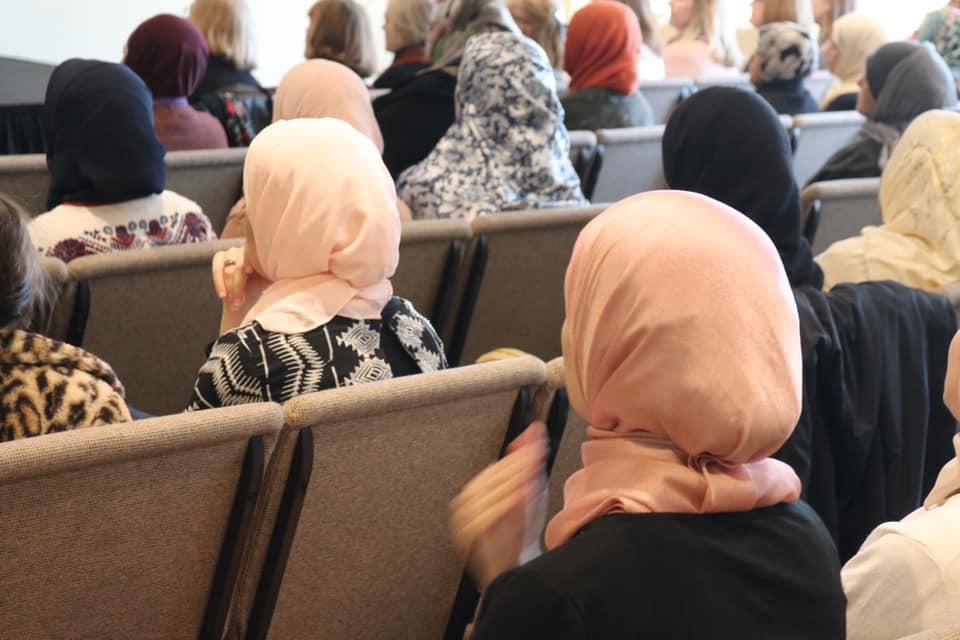
In the faith-based meditation we introduced, participants are encouraged to prepare by performing ablution (wudu), dressing in clean attire, and applying a pleasant scent or perfume. During the meditation session, individuals engage in a practice known as “thiker,” which involves taking deep breaths and holding them while reciting one of the divine names of Allah. They then release their breath slowly, repeating this mindful breathing cycle for a minimum of 15 minutes. This practice promotes a deep sense of tranquility and connection during their meditation experience.
Coffee with Refugees:
Mozaic’s approach to fostering well-being among refugees combines Coffee with Refugees program and regular social gatherings with a focus on cultural integration. These initiatives serve as vital components in creating a safe and welcoming space for refugees, where they can find respite from their daily responsibilities, freely express their thoughts and concerns, engage in discussions about new projects, and, most importantly, build connections that break down barriers and foster a profound sense of belonging. Within this nurturing environment, refugees can feel secure and supported as they navigate the challenges of their new lives with Mozaic team.
Life Skills:
At Mozaic, we take pride in our efforts to empower refugees with essential life skills and the positive outcomes we’ve witnessed as a result.

Through our initiatives, we have seen firsthand the profound impact of life skills on refugees’ lives. These encompass a diverse range of abilities critical for daily living and self-sufficiency, including effective communication, problem-solving, decision-making, time management, and emotional regulation. Our experience has shown that refugees who acquire these skills are better equipped to adapt to new environments, cultivate resilience, and lead more fulfilling lives.”
Identify Life Goals and Exploring Paths:
Assisting refugees in identifying their life goals and passions has proven to be instrumental in improving their mental health. At Mozaic, we encourage refugees to explore different paths and interests through trial and error, which has allowed them to discover their unique talents and strengths. This process of self-discovery and goal setting provides refugees with a profound sense of purpose and direction, significantly enhancing their overall well-being and mental resilience. Through our efforts, we empower refugees to uncover their own gifts and determine their preferred paths, ultimately helping them make informed decisions about their future. This not only boosts their confidence but also ignites their motivation to overcome challenges and pursue a brighter tomorrow.

This emphasis on goal setting and self-discovery aligns with the broader approach of providing holistic support to refugees, addressing not only their immediate mental health needs but also fostering long-term well-being and self-sufficiency.
Vocational Training:
Our vocational training programs have sparked a remarkable transformation among refugees. The knowledge acquired through these initiatives has ignited their ambitions, instilling the confidence to pursue careers and achievements that once seemed out of reach. Distant dreams have transformed into tangible goals, and we’ve embarked on the initial steps alongside these resilient individuals to turn those dreams into reality.
Our offerings, including culinary and sewing classes, have not only equipped refugees with valuable skills but have also infused them with a profound sense of purpose and accomplishment. Nevertheless, it’s essential to acknowledge that not all aspirations are easily attainable. For example, while we supported several refugees in their pursuit of cybersecurity studies, they encountered the unfortunate reality that obtaining security clearance as refugees or asylum seekers posed insurmountable challenges.
Despite these setbacks, vocational training remains a cornerstone in enhancing the mental well-being of refugees. It paves the way for them, offering opportunities to build a brighter future while nurturing a deep sense of accomplishment and self-worth. These programs not only sharpen practical abilities but also nurture the human spirit, ultimately fostering resilience and optimism as refugees continue their journey towards rebuilding their lives.
The chefs who participated in our culinary programs have achieved remarkable outcomes. Their journey reached a pivotal moment when they received their first payment for a food order, a moment akin to unlocking previously sealed doors that now swing wide open. This accomplishment not only marked a financial milestone but also symbolized newfound opportunities and a sense of liberation.
While many of these methods have shown significant positive outcomes, it’s important to recognize that the effectiveness of mental health interventions can vary from person to person. What works best for one individual may not be as effective for another. Therefore, a combination of approaches and a personalized approach to mental health support are often necessary to address the diverse needs and preferences of refugees. Additionally, ongoing evaluation and feedback from the refugees themselves can help determine the most successful methods in their specific context.
